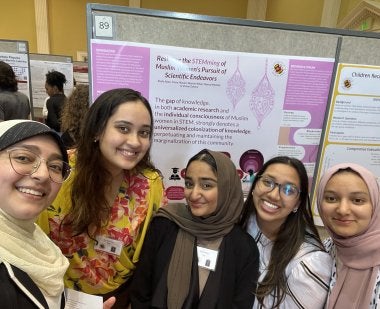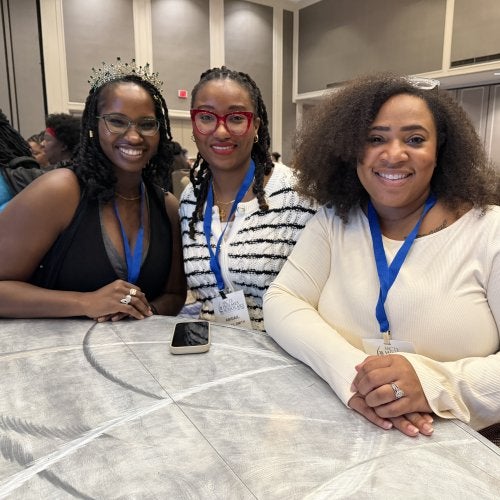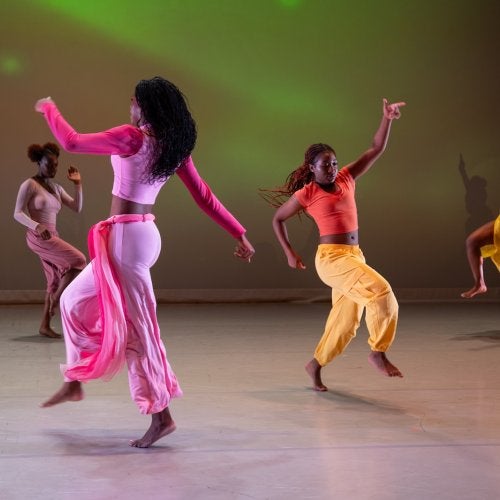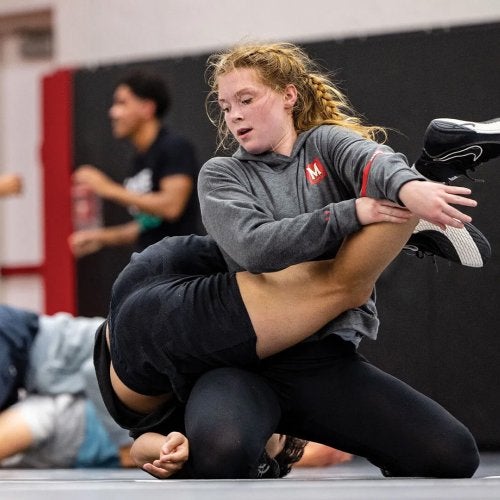
In Western cultures, science, technology, engineering and math (STEM) research is known for its rigid procedural methodology. Most experimental research in STEM relies on objectivity and the removal of bias. However, Vivian Ali Zohery ’17, M.A. ’20, Ph.D. ’24, who recently completed her doctorate in teaching and learning, policy and leadership, mathematics and science education specialization, at the University of Maryland, believes that instilling elements of faith and culture can enhance meaningful research.
Zohery, who comes from a rural Egyptian background, began her mission to incorporate Eastern practices and methodology into Western STEM education by exploring how science is taught and discussed within Western schools and universities. For her, STEM is not as rigid as most Western scientists believe but can include unique cultural contexts and the engagement of local communities.
“Science for me has always been a spiritual thing, not devoid of faith,” said Zohery.
In her dissertation research, Zohery organized a group of four Muslim women undergraduate STEM students and studied their experiences as they examined both their own and other Muslim women students’ experiences in STEM fields. The group used an approach called participatory action research (PAR), which helps remove unequal power dynamics between researchers and participants, while allowing the researchers to study issues that directly affect them.
When Nusrat Meetul ’25 first heard that Zohery was recruiting students for the project, she felt inclined to learn more. Entering UMD as a freshman nearly four years ago, she felt detached from her Islamic heritage. As a computer science major, she felt isolated; among the small number of women in her classes, she rarely met any who shared her Islamic identity.
“I thought it would be a good way of getting that Islamic exposure that I wasn’t getting,” said Meetul.
Meetul, along with fellow researchers Shafa Alam ’26 and Yusra Husain ’26 (both public health majors) and Mariam Khan ’23 (who recently completed her master’s degree in bioethics at Johns Hopkins University), call themselves SiSTEM, or Sisters Interrogating STEM. In Fall 2023, Zohery and the SiSTEM team met with 16 Muslim women, all with backgrounds in STEM, from across campus to engage in conversations about the relationship between Islamic values and the STEM fields. The three-hour discussion focused on how Muslim women in Western cultures incorporate their faith into STEM careers.
The SiSTEM researchers used a traditional form of Islamic information exchange known as halaqah to structure their gathering. In halaqah, conversations are often based on real-life experiences that can relate to traditional Islamic teachings. By using the culturally relevant format of halaqah, the researchers were able to create a safe space for Muslim women STEM students to share their experiences.
The use of halaqah in the study was intentionally aimed at redefining what are considered to be traditional Western scientific research methods, shared Meetul.
“Halaqah [is] not something that’s done in [Western] classrooms, especially STEM classrooms, so it’s our twist on stepping out of the standards of STEM,” said Meetul.
Meetul shared that using halaqah helped her and the rest of the SiSTEM team better understand their own identities as Muslim women in STEM and fostered what they now consider to be lifelong bonds.
The SiSTEM team was given the opportunity to write a chapter on their research on cultural integration in STEM fields in the forthcoming book series “The Criticality of Research for and about Women in Education: A Call to Empowering Women and Girls for the Present and the Future,” which will be published by the Research on Women and Education Special Interest Group of the American Educational Research Association.
Zohrey wants to focus on sharing the team’s work throughout local communities. In December 2024, Zohery gave a presentation at the Islamic Schools League of America’s Annual Research Symposium on how SiSTEM’s PAR approach has impacted local communities.
As they continue to analyze the data they collected over their nearly two-year study–including from a campus-wide survey of Muslim women STEM students, from the halaqah, and from a post-halaqah poll–they have found that study helped many of the participants discover more about their own Islamic identity and history. For example, Meetul said that during small group conversations at the halaqah, many participants reported that they had not previously learned much about the history of Islamic contributions to science and that they appreciated learning about this topic during the gathering.
Zohery explained, “One of the main core findings from the halaqah was that … there is this systematic building of a mindset that prioritizes Western frameworks and perspectives, which can cause individuals [from] marginalized communities to undervalue or disconnect from their own identities in academic spaces.”
The project has left a strong impression on both its participants and researchers.
Meetul recounted, “We’ve all grown because of this project, religiously, academically, spiritually, in every way.”
Photo (from left to right): Zohery, Khan, Alam, Meetul and Husain present at UMD’s Undergraduate Research Day, April 2023.



